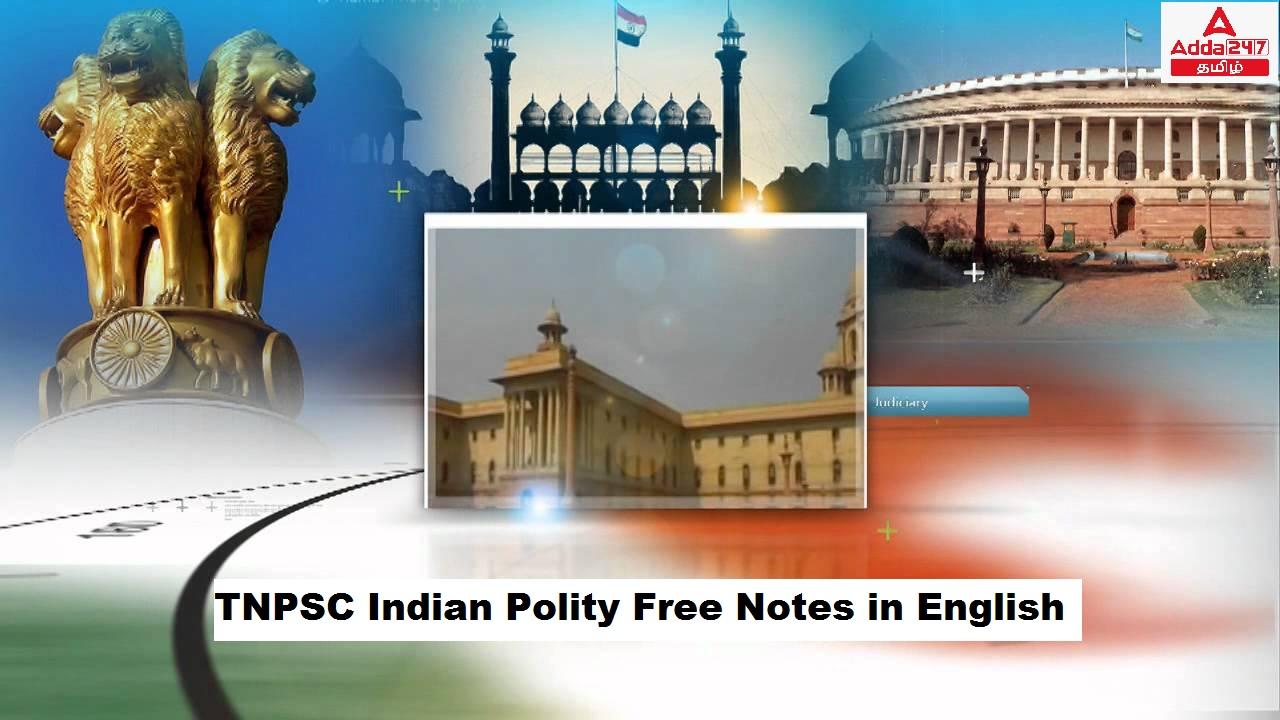இந்தக் கட்டுரையில், TNPSC குரூப் 1, குரூப் 2, குரூப் 2A, குரூப் 4 மாநிலப் போட்டித் தேர்வுகளான TNUSRB, TRB, TET, TNEB போன்றவற்றுக்கான முறைகள் இலவசக் குறிப்புகளைப் பெறுவீர்கள்.தேர்வுக்கு தயாராவோர் இங்குள்ள பாடக்குறிப்புகளை படித்து பயன்பெற வாழ்த்துகிறோம்.
Central-State Relationship Commitee
Administrative Reforms Commission
There were two Administrative Reforms Commissions that were established in the past
to provide recommendations for reviewing and reforming the administrative system of
the country.
The First Administrative Reforms Commission was formed in 1966, initially under the
leadership of Morarji Desai and later on K.Hanumanthaiah. It submitted twenty
reports, including one in which extensive suggestions were provided in the domain of
centre state relations.
The Second Administrative Reforms Commission was constituted in the new
millennium in 2005 under the chairmanship of Veerappa Moily initially and later on
V.Ramachandran.
Rajamannar Committee
Rajamannar
The Tamil Nadu government established the Rajamannar committee to analyse and
provide recommendations for restructuring the center-state relations in our
constitution.
The committee consisted of the retired Chief Justice of Madras High Court Justice.
P.V.Rajamannar, former Vice- Chancellor of the University of Madras, Dr A
Lakshmanaswamy and a former Chief Justice of Andhra, Dr P. Chandra Reddy.
It submitted its report to the government in 1971 marking a great milestone in the
history of autonomy debate in the country.
Major Suggestions
The Article 263 of the constitution should be implemented, and Inter-State
Commission should be formed to promote cooperation among central and state
governments. The committee made consultation with the Inter-State Council
mandatory in all matters barring those related to the two subjects of defence and
foreign affairs.
The committee argued that the present scheme of centre state relations in the
constitution favors centre’s supremacy and erodes state autonomy and therefore
recommended the elimination of articles 256, 257, 339(2) from our constitution.
It favored the shifting of the residuary powers of legislation and taxation from the
Union government to the State governments to empower the states.
As article 356 in Part XVIII of the constitution should be diligently used by the Union
Government only as a measure of last resort in the event of a complete breakdown of
the constitutional machinery in the state and not in a mere law and order break down
situation.
The committee wanted to introduce far-reaching changes in All India Services. It
opined that there should be only two kinds of services, central services devoted to the
needs of union administration and state services looking after the state
administration.
In the domain of financial resources, the committee recommended greater devolution
of powers and resources to the states. It argued for making the Finance Commission a
permanent, impartial body devoted to the priorities of national unity, development
and state rights and identities.
Sarkaria Commission
The union government in the backdrop of many reform demands in federal domain to
review the centre state relations constituted a commission under the chairmanship of
Justice R.S.Sarkaria in 1983.
There were two more members B. Sivaraman and Dr.R.S. Sen in the commission. It
submitted a comprehensive report containing 247 recommendations five years later.
Punchhi Commission
The Union Government constituted a commission under the leadership of Justice
Madan Mohan Punchchi, the former Chief Justice of the Supreme Court in 2007.
The commission also had three more members and a Secretary and presented its report
in 2010. It recommended that the Governors of the states must have fixed tenure and
they should be removed only through an impeachment process akin to the President of
India.
It wanted to introduce changes in articles 355 and 356 so that insurgency or problem
afflicted areas or districts in a state rather than the entire state can be brought under
emergency as a strategy to localise emergency and efficiently handle insurgency or
troubles.
The commission also suggested that the Union Government must have power and
authority for the suo-motu deployment of central forces without the consent of the
concerned states in areas affected by communal violence.
Venkatachaliah Commission
The National Commission to review the working of the Constitution (NCRWC) also
known as Justice Manepalli Narayana Rao Venkatachaliah Commission.
It was set up by a resolution of the NDA Government of India led by Atal Bihari Vajpayee
on 22 February 2000 for suggesting possible amendments to the Constitution of India.
**************************************************************************
| Adda247 TamilNadu Home page | Click here |
| Official Website=Adda247 | Click here |




